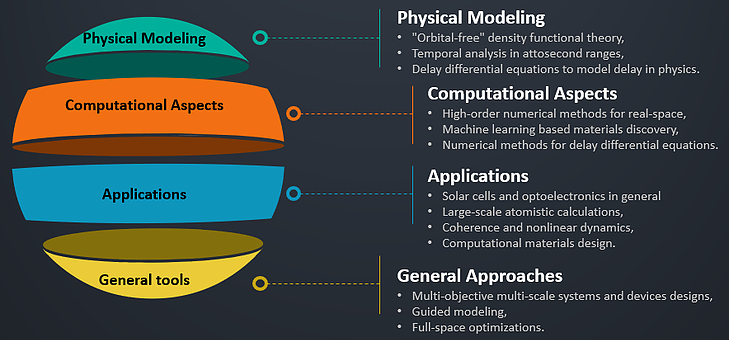|
The
group research portfolio is structured around computational
materials design with more emphasis on computational methods
development and device physics & engineering. Many of our research
activities need experimental work and hence we have been collaborating
with few experimental teams. In these collaborations, we cover the
theoretical and computational parts and the colleagues in the
experimental teams handle the fabrications and experiments. Such
interdisciplinary activities are inevitable considering the extensions
of considered problems.
We
are working currently in three main research themes; namely the
development and applications of new methods for large-scale atomistic
calculations, machine learning for high throughput computational
materials design, and multi-objective multi-scale inverse computational
systems and devices design. The aim of the 1st theme is to enable
highly accurate atomistic calculations of electronic systems with at
least multi-million atoms. This requires an interactive development
involving applied mathematics and mathematical physics. The aim of the
2nd theme is to apply machine learning to have better understanding for
long-standing problems in first principle calculations and also
applications of machine learning in materials discovery and model
developments. The aim of the 3rd theme is to develop and apply a robust
multi-scale framework to concurrently and computationally design
materials and devices for a wide range of applications. This shall
allow developing more accurate and efficient tools with improved
predictions. The below figure summarizes

|